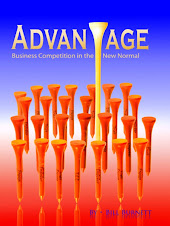In a prior blog (http://superinnovator.blogspot.com/2012/05/leader-speak-advocacy-vs-inquiry.html) I talked about how leaders speak and the role of Advocacy vs Inquiry. Advocacy is about stating your case, and usually begins with “I think...”. Inquiry happens when people ask questions to seek clarity "How do we...". I pointed to an example that came from Chris Argyris, a Harvard Professor.
“Another example given is “What evidence do you have that our expenses are too high? And how certain are you of this?” The first question is ok, although I would have replaced the “you” (which can be seen as a bit accusatory) with “we” to distance ourselves from Advocacy. The second question, “And how certain are you of this” is problematic. We don’t care how certain someone is of an opinion. We need the facts, and the only relevant question is “What are the facts?”
Advocacy can create a significant road block to truth. Psychological examinations of this show how insidious strong Advocacy can be. In the book Nudge, authors Richard Thaler and Cass Sunstein talk about research done by Muzafer Sherif. In his work he had people make judgements about something they observed. In groups people seemed to converge on a single judgement even though individually their judgements varied greatly. Then he added a confederate, someone who was introduced to see if strong Advocacy could sway the group. The confederate would take a radical but very confident stance on the judgement. This would sway the group to move closer to that position than they’d been inclined to without the Advocate. What was discovered next was truly remarkable and worrisome.
Once you participated in the group judgement it became thoroughly internalized. When reporting that judgement later, even a year later, and in a new group, people will adhere to the original judgement. For some reason we conserve a collective judgement until it can become truly entrenched in our thinking.
 In business this is almost always a weakness. And you are better off guarding against group think. We train individuals to play “Good Cop” in a meeting. Their assignment in a meeting is to observe the meta-talk of other participants in the meeting and at the appropriate time, report on where the team has trapped itself. This requires a bit of team training to make sure the team handles this part of the agenda correctly. Otherwise, you end up with decision that are based on opinion and strong advocacy rather than good analysis.
In business this is almost always a weakness. And you are better off guarding against group think. We train individuals to play “Good Cop” in a meeting. Their assignment in a meeting is to observe the meta-talk of other participants in the meeting and at the appropriate time, report on where the team has trapped itself. This requires a bit of team training to make sure the team handles this part of the agenda correctly. Otherwise, you end up with decision that are based on opinion and strong advocacy rather than good analysis. 






No comments:
Post a Comment